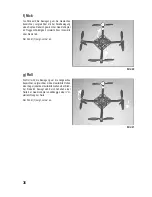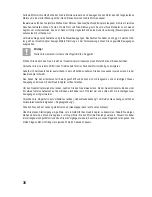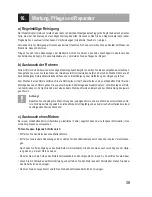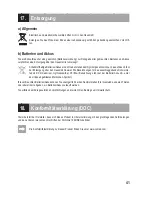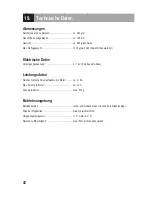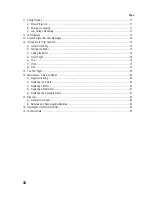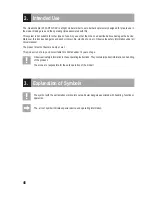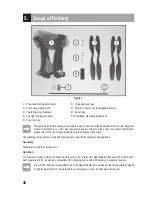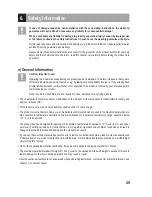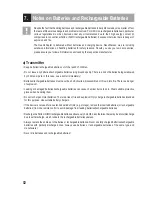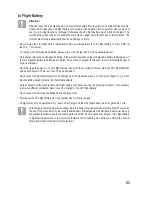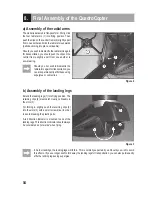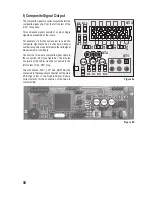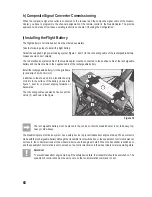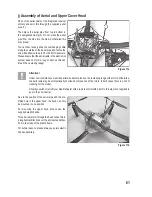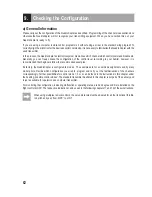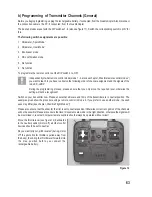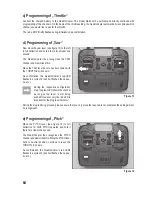
50
b) Before Commissioning
• Make sure that no other models are operated on the same channel (transmitter frequency in 35 or 40 MHz remote
controls) within the range of the remote control. For remote controls in the 2.4 GHz-band, check if your remote
control can be operated at the same time as other remote controls in the same frequency band (2.4 GHz) without
interferences. Otherwise, you will lose control of the remote-controlled models!
• Unroll the aerial wire of the receiver on the model to its complete length. Install the aerial in a way that the aerial wire
cannot be caught in any rotating parts. The aerial wire should be inserted into the aerial pipe and the loosely coiled
excess length (e.g. in 35 or 40 MHz remote controls) fixed with transparent adhesive tape to the aerial pipes. Do not
cut the aerial wire off under any circumstances as this will reduce the range of the remote control. Also check the
specifications of the remote control manufacturer.
• Regularly check the functional reliability of your model and the remote control system. Watch out for any visible
damage such as defective plug connections or damaged cables.
• All moving parts of the model must run smoothly, but should not have any play in their bearings.
• Check before each operation the correct and secure position of the rotors.
• Charge the flight battery, which is necessary for operation, as well as the rechargeable battery that may be inserted
in the remote control according the manufacturer’s instructions.
• If batteries are used as a transmitter power supply, make sure that they have sufficient remaining capacity (battery
checker). If the batteries are empty, always replace the complete set, never individual cells only.
• To operate your model, always pull out the telescopic aerial completely as the transmitter (for 35 or 40 MHz remote
controls) would otherwise cover a decisively smaller range and the amplifier of the transmitter would be overloaded
significantly.
• Always switch on the transmitter first. Please ensure that when you turn on the transmitter the throttle control is set
to the lowest setting (motors off)! Then the flight battery of the model may be connected. Otherwise, unexpected
reactions of the model may occur and the rotors might run unintentionally! Risk of injury!
• When the rotors are running, make sure that neither objects nor body parts are in the rotating and suction area of the
rotors.
c) During Operation
• Do not take any risks when operating the model! Your own safety and that of your environment is solely down to you
being responsible when dealing with the model.
• Improper operation may cause serious injury and property damage! Therefore make sure to keep a sufficiently safe
distance to persons, animals or objects during operation.
• Select suitable ground to operate your model.
• Fly your model only if your ability to respond is unrestricted. The influence of tiredness, alcohol or medication can
cause incorrect responses.
• Do not direct your model towards spectators or towards yourself.
• Motor, flight controller and flight battery may heat up during operation of the model. For this reason, please take a
break of 10 to 15 minutes after flying for a maximum of 20 minutes before recharging the flight battery or restarting
with a possible spare battery. The drive motors must have cooled down to ambient temperature.
Summary of Contents for 450 ARF QC09
Page 166: ...166 ...
Page 167: ...167 ...

